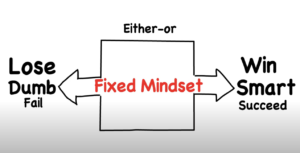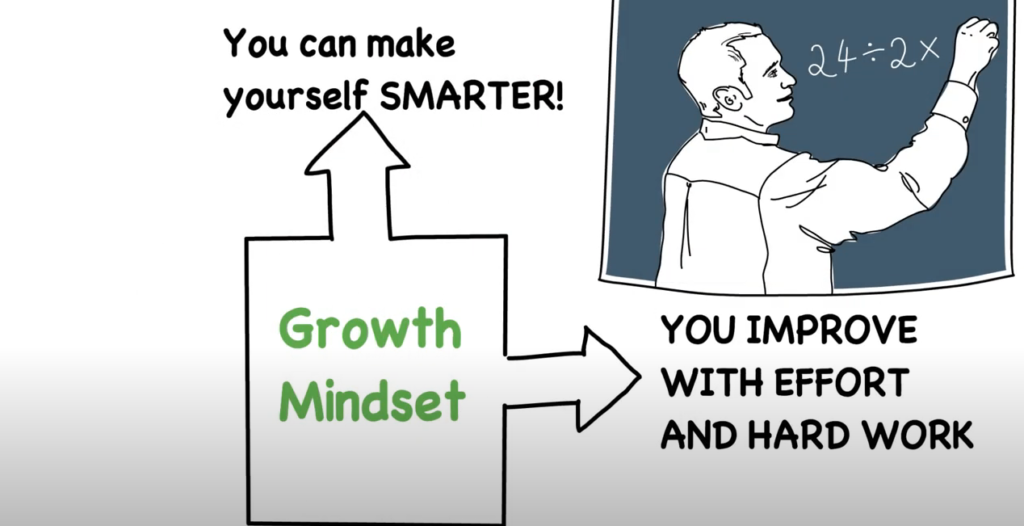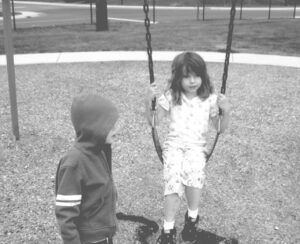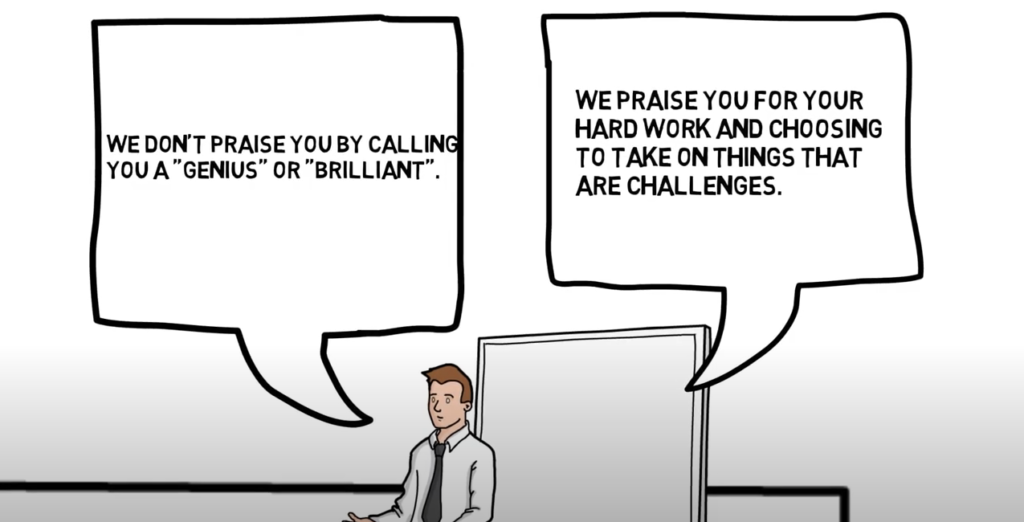Rating: 5 stars out of 5


We learn in “Mindset” that genetic ability is not the best measure of success and possibility. Our society focuses too much on this idea. This belief is the “fixed mindset”. Fixed mindset ideas are when you hear people say things like: “He’s a genius.” “It comes naturally to her.” “I win, you lose.” “Either you got it or you don’t.”

The fixed mindset is very either-or language.
This gives mixed messages to children.
Dweck says it’s better to come from the GROWTH mindset. This is when it’s all about hard work, effort, and focus. That is, putting in the effort, and work, and “trying”, is the way to go. Of course, as Dweck writes, hard work and motivation alone doesn’t mean a person can do anything. But people with the growth mindset are not delusional about their abilities. They understand the importance of hard work, passion, and proper training.

Here is a great animated book summary of “Mindset” that I highly recommend that goes over these ideas in more detail:
What’s great about watching videos like this, is that they inspire you to think in the growth mindset. That is, just the act of simply reviewing the growth mindset, according to Dweck, PUTS you in the growth mindset.
Dweck uses a lot of examples from her personal life. Her anecdotes are based on a broad platform of research which she has conducted for over 30 years. Her core message is encouraging and inspires people to feel that they can change no matter what stage of life they are in. Developing this new mindset doesn’t necessarily mean everything in a person’s life will be flawless. She is simply saying that this new framework will help one rethink the way they see the world.
For example, in Chapter 6 Dweck suggests that people with a fixed mindset may feel love has to be an ideal occurrence that is PERFECT from the start. It is this fairy-tale like love found in Disney movies where people think they have to be connected to their partner in a way where they know what the partner thinks and feels. Yet as many people find out, mind-reading backfires. Some of these partners might have difficulty when conflict occurs because this was not how they envisioned their relationship being from the start. Thus, it may be too much work for them, and they may not want to work on solving these problems. Such a scenario is unfortunate and many people fall into this trap, as simple as it sounds.
On the other hand, people with a growth mindset believe that they and their partner can change, and together they work toward taking actions to make those changes occur. Dweck believes “the point of marriage is to encourage your partner’s development and have them encourage yours. (p. 155)” This partnership is meant to help partners work together on fulfilling goals and their own potential. This means also being aware of themselves and not being competitive with their partner or “taking” their partner’s identity.
Even the best of us forget sometimes that relationships come in many power differentials. And these are not always good, obviously. She delves into the minds of those who bully at school.
Dweck suggests bullying and victim’s revenge may actually be affected by a fixed or growth mindset. Students who are bullied who have a growth mindset will not view this event as something to do with them. They’re just in the wrong place at the wrong time. And they can get through it with a parent or teacher’s help and without overreacting. On the other hand, people with the fixed mindset treat this event differently. They might feel revenge is the only option and are drawn to take inappropriate action. An extreme but far too common example is what we saw in the Columbine shootings. These young individuals were greatly affected by the criticism and tremendous judgment they felt they faced on a daily basis. Their inappropriate reaction was that they had to punish their tormentors and others in the school.
Fortunately, Dweck believes there are ways schools can stop bullying – and that’s by changing the mindset of not only the individual, but the entire environment in which the individual resides. Unfortunately, many schools are stuck within a fixed mindset and think there is nothing they can do to create change. They think some kids are just “bad” and there is little anyone can do to help. However, there are some schools which have dramatically reduced the bullying atmosphere by creating an environment “of collaboration and self-improvement (p. 164).” They not only work to empower the students who are being bullied, but also try to treat the bully with respect as a person. They encourage this person’s growth by praising their efforts. This is such a powerful tool for school counselors to consider. They can work with teachers to create a non-judgmental atmosphere centered on improving every student at the school.

So we are finding that many teachers with a fixed mindset create a detrimental learning environment and automatically judge students as being either “smart” or “dumb”. These teachers are automatically giving up on students before they give them a chance to improve and learn. The most successful and effective teachers celebrate their student’s success no matter how small of an improvement. They challenge the students while nurturing them along the way. Teachers like these are learning and growing themselves. Never do they feel they are finished growing and evolving as teachers and human beings.
Again, Dweck writes that simply learning about growth mindsets can help people begin to shift their thinking and change their lives. Yet mindset change is not merely about picking and choosing what to change here and there. It’s is about making a lifestyle transformation which affects everything a person thinks, does, or even feels. This transformative endeavor and commitment to growth may be arduous and scary. Dweck challenges her readers to think about ways in which they personally want to grow, learn, and change. She gives the reader a feeling of “I can do it” attitude. It cannot be overstated enough that a person is never fully finished working on themselves and their life situation. While this doesn’t solve everyone’s problems, it does help them to view the world in a more positive and productive light. Schools are an excellent place to begin to promote this way of thinking and responding to situations.

I found this book to be extremely eye opening and an important read for anyone in the human services industry – especially teachers and school counselors.
Again, make sure to watch this “Mindset” video on Youtube by Wolfsuka animated book summaries, it is excellent: https://bit.ly/3jwF5TV
Bibliography
Dweck, C. (2006). Mindset: The new psychology of success. New York: Random House.
